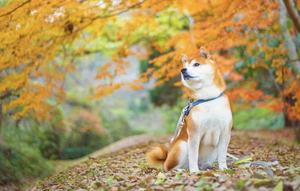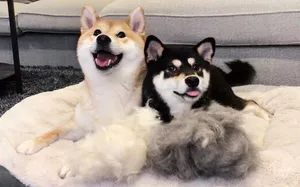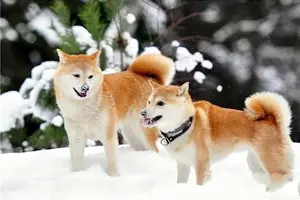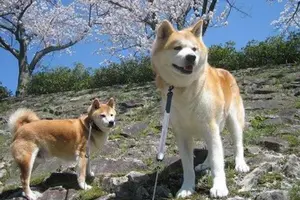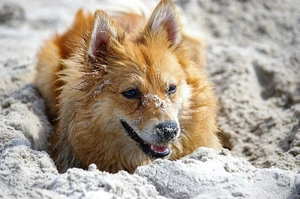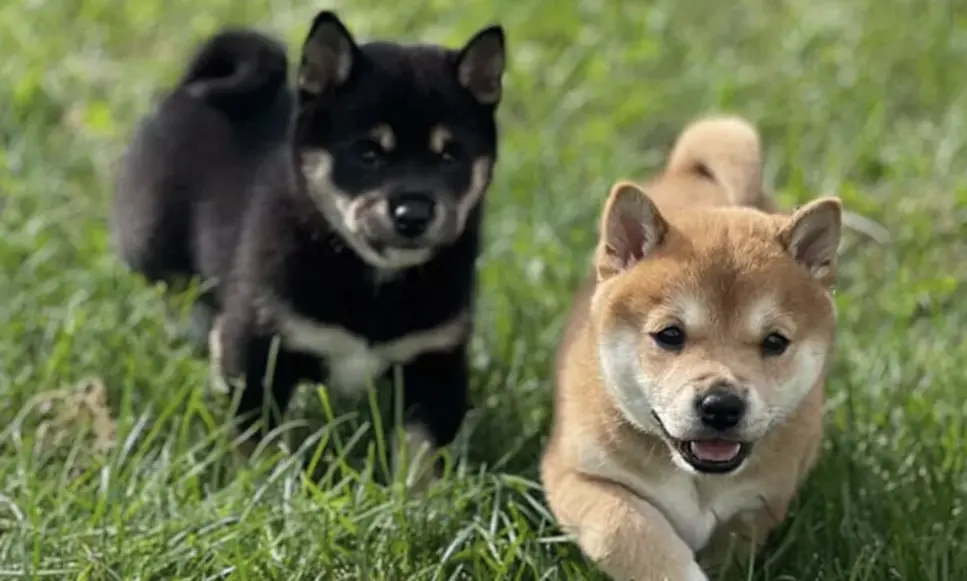
If you’re considering getting a dog, you may have heard about the Shiba Inu. This Japanese breed is known for its fox-like appearance, independent personality, and loyal nature. While Shiba Inus can make great pets, they are not the right choice for everyone. In this beginner’s guide, we’ll explore the characteristics of the Shiba Inu breed, as well as the responsibilities and costs of pet ownership, to help you determine if a Shiba Inu is the right breed for you.
Breed Characteristics
Shiba Inus are a small to medium-sized breed, typically weighing between 17 and 23 pounds. They have a distinctive fox-like appearance, with small ears, a thick tail, and a fluffy coat that comes in a variety of colors, such as red, black and tan, and sesame.
Shiba Inus are known for their independent and sometimes stubborn personalities. They are intelligent dogs, but can be difficult to train and may not always obey commands. They are also known for their loyalty to their owners and can be protective of their family members.
Shiba Inus have moderate exercise needs and enjoy daily walks or runs. They are not well-suited for homes without a secure yard, as they have a tendency to wander off and may not come when called.
Grooming requirements for Shiba Inus include regular brushing to prevent mats and tangles in their thick coat. They shed heavily twice a year, which can require more frequent brushing and cleaning during those times.
Overall, Shiba Inus can make great pets for the right owner who is willing to put in the time and effort to train and care for them properly.
Living Arrangements
Shiba Inus are a high-energy breed that require daily exercise and mental stimulation. They are not well-suited for apartment living or homes without a secure yard, as they have a tendency to wander off and may not come when called.
If you live in a house with a yard, a Shiba Inu may be a good fit for you. However, it’s important to ensure that your yard is secure and that you supervise your dog when they are outside. Shiba Inus are known for their ability to escape from yards and can be skilled climbers and diggers.
If you live in an apartment or small living space, a Shiba Inu may not be the best breed for you. They require space to run and play, and may become destructive or anxious if they do not receive enough exercise or mental stimulation.
Overall, it’s important to consider your living situation and ensure that you have the space and resources to provide a suitable environment for a Shiba Inu before deciding to bring one into your home.
Training and Socialization
Shiba Inus are known for their independent personalities and can be difficult to train. It’s important to start training and socialization at a young age to ensure that your Shiba Inu develops good behaviors and is well-adjusted around people and other animals.
Positive reinforcement training methods, such as reward-based training, work best with Shiba Inus. Harsh or punishment-based training methods can cause them to become defensive or aggressive.
Socialization is also important for Shiba Inus, as they can be wary of strangers and other animals. Early socialization can help your Shiba Inu become comfortable around new people and animals and prevent issues with aggression or anxiety.
It’s important to be patient and consistent with training and socialization, as Shiba Inus can be slow learners and may not always obey commands. However, with proper training and socialization, a Shiba Inu can become a well-behaved and loyal companion.
Health and Care
Shiba Inus are generally a healthy breed, but like all dogs, they can be prone to certain health issues. Common health issues that Shiba Inus may experience include allergies, hip dysplasia, and eye problems such as glaucoma.
Regular veterinary check-ups and preventative care can help keep your Shiba Inu healthy. It’s also important to keep up with routine vaccinations and parasite prevention, such as flea and tick prevention.
Grooming requirements for Shiba Inus include regular brushing to prevent mats and tangles in their thick coat. They shed heavily twice a year, which can require more frequent brushing and cleaning during those times.
It’s important to provide your Shiba Inu with a healthy diet and regular exercise to maintain their overall health and well-being. Obesity can be a problem for Shiba Inus, so it’s important to monitor their food intake and provide them with enough exercise to keep them at a healthy weight.
By providing your Shiba Inu with proper care and preventative health measures, you can help ensure that they live a long and healthy life.
Costs and Responsibilities
Owning a Shiba Inu comes with both financial and time responsibilities. Before deciding to bring a Shiba Inu into your home, it’s important to consider these costs and responsibilities.
The initial cost of a Shiba Inu can range from a few hundred to a few thousand dollars, depending on whether you choose to adopt or purchase from a breeder. Ongoing costs include food, veterinary care, grooming, and other supplies. It’s important to budget for these costs and ensure that you can afford to provide your Shiba Inu with the care they need.
In addition to financial responsibilities, owning a Shiba Inu requires a significant time commitment. They require daily exercise, mental stimulation, and socialization. They may also require training to ensure that they develop good behaviors and are well-adjusted around people and other animals.
It’s important to ensure that you have enough time to properly care for a Shiba Inu before deciding to bring one into your home. They require a lot of attention and may become destructive or anxious if they do not receive enough exercise or mental stimulation.
By carefully considering the costs and responsibilities of owning a Shiba Inu, you can ensure that you are prepared to provide a loving and responsible home for your new pet.
Finding a Shiba Inu
If you’ve decided that a Shiba Inu is the right breed for you, the next step is to find a reputable breeder or adoption agency. It’s important to do your research and find a breeder or agency that is dedicated to breeding and raising healthy, well-socialized Shiba Inus.
When looking for a breeder, ask for references and visit their facility to ensure that the dogs are well-cared for and the breeding practices are ethical. Avoid breeders who prioritize profit over the health and well-being of their dogs.
Adoption agencies can also be a great place to find a Shiba Inu in need of a loving home. Many reputable rescue organizations specialize in rescuing and rehoming Shiba Inus, and can provide you with information on the dog’s history and temperament.
Regardless of whether you choose to adopt or purchase from a breeder, it’s important to take the time to find the right dog for you and your family. A Shiba Inu can be a loyal and loving companion, but it’s important to ensure that you are prepared to provide them with the care and attention they need to thrive.
A Shiba Inu can be a great pet for the right owner who is willing to put in the time and effort to train and care for them properly. Before deciding to bring a Shiba Inu into your home, it’s important to consider the breed’s characteristics, living arrangements, training and socialization needs, health and care requirements, and costs and responsibilities of pet ownership.
By carefully considering these factors and ensuring that you are prepared to provide a loving and responsible home for a Shiba Inu, you can ensure that you and your new pet have a happy and healthy life together.

